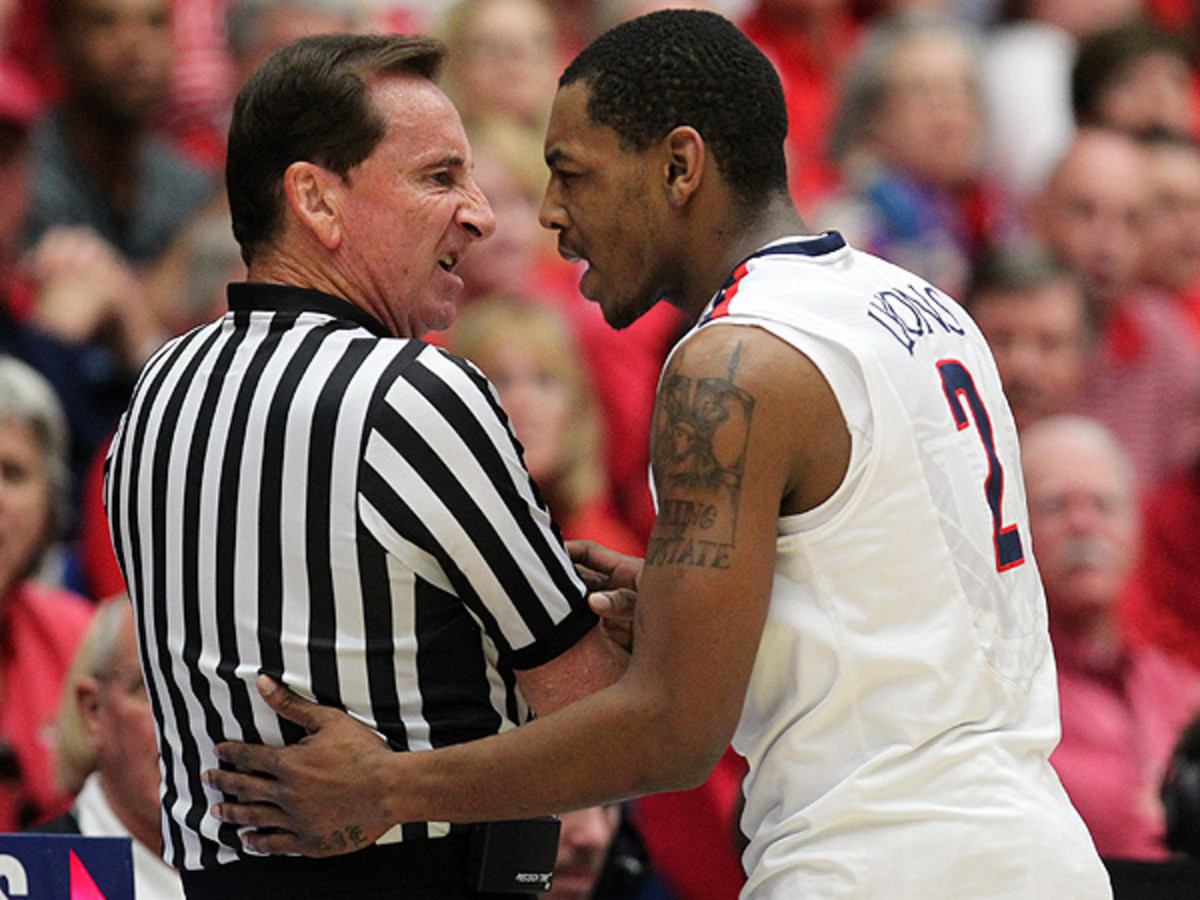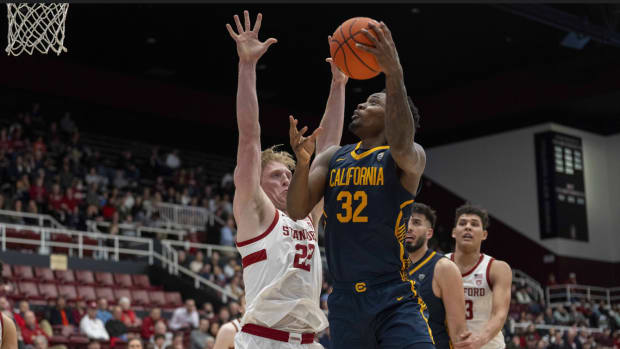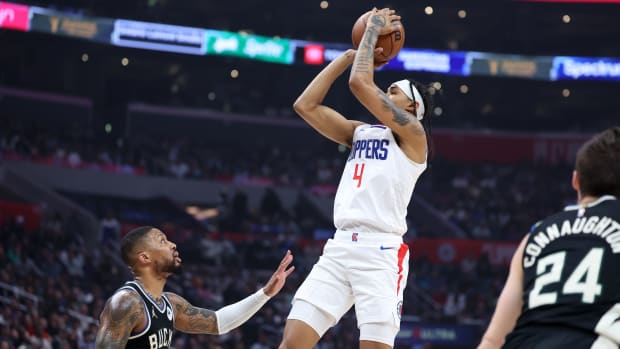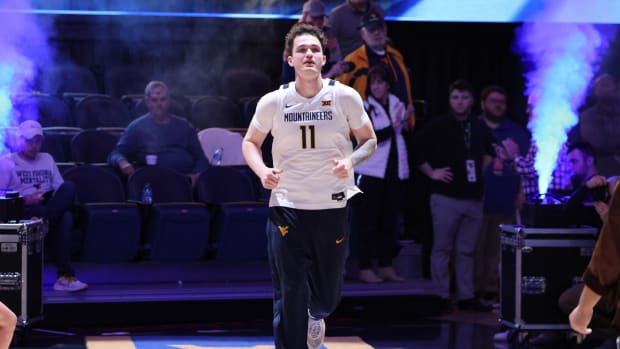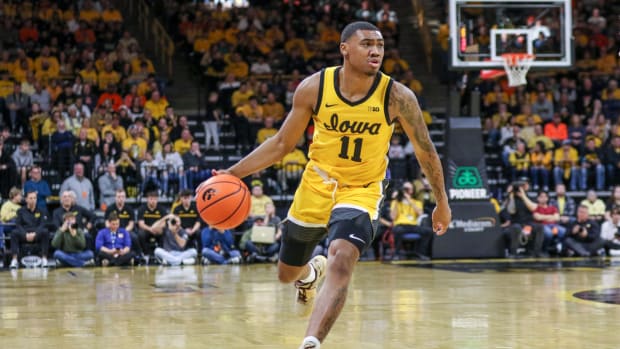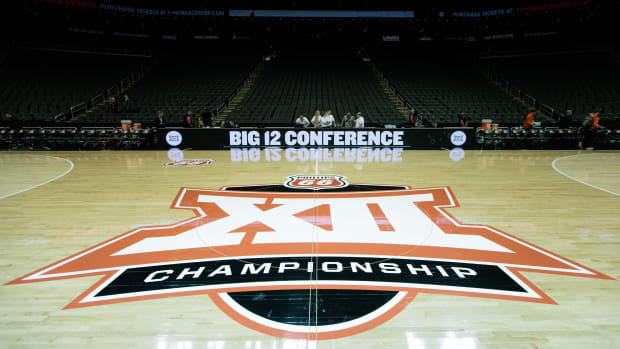Pac-12/Mountain West ref alliance could have multiplier effect for region
Inconsistent and questionable officiating became an issue in the Pac-12 last season. (Chris Coduto/Icon SMI)
After Arizona State's buzzer-beating overtime win at Colorado last February, the national buzz was principally about Evan Gordon's game-winning layup that rattled around the rim and dropped at the horn. On the Coors Events Center floor, though, the discussion with ESPN college hoops analyst Sean Farnham, who called the game for the network, was about the tragicomedy that was the officiating in the game.
That contest may have been the worst officiated game I witnessed in person in several seasons, but it certainly wasn't the exception to the Pac-12 rule last season. The league struggled terribly with inconsistent and/or poor officiating, with its fans in semi-open rebellion about it on Twitter. Mountain West fans annoyed by calls (in a league with one of the most extreme home-court advantages in America) often consoled themselves by remembering that at least they weren't the Pac-12.
The postseason news about Pac-12 referee coordinator Ed Rush's alleged bounty on Arizona head coach Sean Miller -- the legitimacy of which was dismissed as part of an investigation into the matter by law firm Ice Miller LLP -- was the final straw. The league needed a complete overhaul of its officiating system, and if the Mountain West could make some strides, too, major Western U.S. basketball would be the better for it.
That's what makes late Friday's announcement of a Pac-12/MWC ref alliance pretty compelling news. The collaboration, overseen by longtime WAC and now MWC ref coordinator Bobby Dibler, will also include the WAC, WCC and Big West conferences, which should help the product in all of those leagues, as well. Dibler previously spent two decades as a ref and officiated in three Final Fours before becoming an administrator.
It was curious in April when Pac-12 commissioner Larry Scott backed Rush in the immediate aftermath of the bounty allegations, even though the league's integrity had clearly been compromised in the eyes of its fans. He soon did a quick turnabout, let Rush go, and now takes another necessary step toward ensuring the perception of the product.
“Under this new alliance, we will be better positioned to attract top lead officials, and to achieve the greatest consistency and accountability deserving of our excellent basketball programs," Scott said in a press release announcing the arrangement.
The program, which will include the hiring of "a deputy coordinator to support the evaluation and training functions of the program, a technology coordinator to manage the software and technology training of officials, and game graders to ensure proper evaluation of all officials," should help in the primary function of improving the consistency and quality of officials in these leagues, but the byproducts could be just as important.
Referee travel and schedules are underdiscussed problems all across Division I. Some of the most prolific officials, who are essentially freelancers who get paid per game (plus travel expenses), ref more than 70 games a year and can go stretches of a week or more reffing every day. That's hard enough on the East Coast, where schools are closer together and travel is a bit less strenuous, with trains and car rides a reasonable alternative if flights aren't favorable (or needed). In the Western part of the country, the schools are much farther apart and there are far fewer programs overall. This map shows that disparity, especially when you get outside Northern or Southern California. Then you have to factor in refs' performance at altitude, as well. It's not just the athletes that have a hard time adjusting on short notice if they're not already acclimated to the mountain region.
